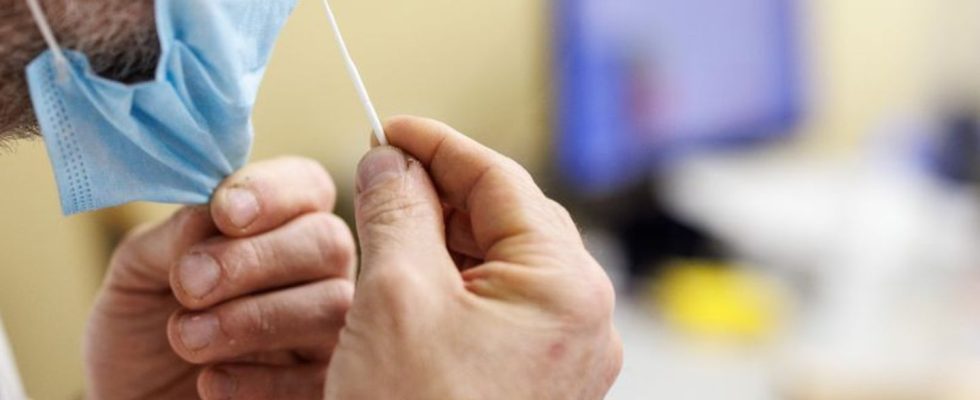Covid-19
Mixed feelings before the first Corona autumn without protective rules
Many Germans are not worried about a possible corona infection this fall and winter. photo
© Matthias Balk/dpa
The number of corona infections has recently increased. Now the colder months are coming, but requirements for masks and tests are a thing of the past. Are there now greater fears? What about voluntary precautions?
Relaxed or worried again: Before the first one According to a survey, in the fall of Corona without mandatory protection rules, the population’s expectations regarding their own health risks vary greatly.
One in two people (50 percent) are not at all worried about a possible corona infection in autumn and winter, as the survey by the opinion research institute Yougov on behalf of the German Press Agency showed. But 46 percent of those surveyed also tend to be worried – 36 percent said they were “somewhat” and another 10 percent said they were “very”.
2,050 people aged 18 and over took part in the representative survey between September 20th and 22nd. Patient advocates warn of inadequate crisis precautions, especially for nursing homes.
Colder season: More infections expected
After the number of infections has recently increased, more corona infections are expected again in the colder season. Because after summer, more things take place indoors. And how relaxed do you take it now when a lot of people are sneezing and coughing in the office or on the bus? At this time a year ago, on October 1, 2022, extra extended fall rules came into force.
Now there are no requirements for masks, tests and quarantine as there once were. According to the current status, no measures in the sense of contact restrictions are needed, said Health Minister Karl Lauterbach (SPD). However, he and the Robert Koch Institute (RKI) recommend booster vaccinations for people over 60 and with previous illnesses, as well as voluntary wearing of masks in certain situations.
No everyday requirements – but decision on site
A good two-thirds of those surveyed agree that state-imposed protective measures will not be necessary this fall and winter. 34 percent completely agreed, 32 percent expressed somewhat agreement. 6 percent did not agree at all, 16 percent did not agree at all.
At the same time, voluntary protective measures in sensitive local facilities are generally accepted. Three quarters of those surveyed support the fact that doctors’ practices, clinics and nursing homes should decide for themselves whether visitors there should wear masks as a precaution: 42 percent completely agreed, and 34 percent somewhat agreed. 18 percent were negative.
Tendency to wear a mask? Rather hesitantly
When it comes to precautionary protective measures that everyone can take for themselves, there is currently a rather cautious tendency. 25 percent said they would definitely or probably not want to wear a mask indoors with a lot of people – 47 percent said they would definitely or probably not want to. Maybe another 23 percent said. On buses and trains, 27 percent definitely or probably want to wear a mask for safety, perhaps 21 percent said. 42 percent said in the survey that they would definitely or probably not do it.
Be careful with fever and sore throat
However, many people are more sensitive to cold symptoms, as the survey showed. 44 percent said that they would definitely or probably take a corona test as a precaution. Maybe another 20 percent said. On the other hand, 30 percent would definitely or probably not do it.
15 percent said that they would definitely have a vaccination or booster vaccination in autumn and winter. Probably 13 percent said, maybe another 15 percent. On the other hand, 36 percent of those surveyed definitely do not want to be vaccinated and probably not another 15 percent.
Prospects for autumn
Experts aren’t just keeping an eye on Corona this winter. “Unfortunately, given the overall situation, a relatively strong infection season is to be expected again,” said the chief virologist at the Essen University Hospital, Ulf Dittmer, to the dpa. “It would clearly be a mistake to only look at Corona.” While there is “broad immunity” against severe courses of coronaviruses, a vaccination against influenza flu makes sense for large parts of the population.
And: “No matter which virus we are talking about, mouth and nose protection helps against all nasopharyngeal viruses at the same time.” The German Foundation for Patient Protection reported doubts as to whether nursing homes are protected against possible corona outbreaks. There are recommendations from the RKI, but there can be no talk of binding protective mechanisms. Test strategies are also open.

